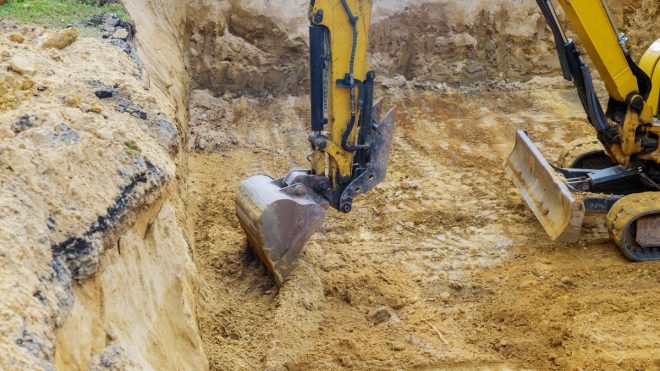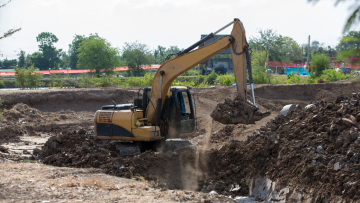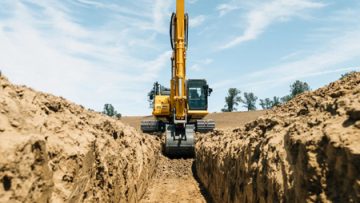A critical window of opportunity for the construction industry opens as the bright colors of spring give way to the warmer, drier embrace of early summer. In particular, the generally dry weather in June creates the ideal conditions for excavation, which is the first stage of practically all building projects. A well-done foundation is crucial to a structure’s success and longevity, whether it be a residential home or a commercial complex. Both developers and homeowners can save time, money, and headaches by understanding why this month is so favorable.
The Science of Dry Soil: Efficiency and Stability
The characteristics of dry soil are the main reason why June’s dry weather is so revolutionary for excavation. Wet ground becomes mushy, shaky, and much harder to work with. Trenches may collapse, heavy equipment may sink, and the entire process may become sluggish and ineffective.
On the other hand, dry soil provides better stability. More defined trench walls, cleaner cuts, and accurate digging are made possible by this firmness. It ensures a safer working environment for excavation crews by reducing the chance of cave-ins. Additionally, because dry soil does not adhere to machinery or need a long drying period before backfilling, it is simpler to transport and grade. This directly results in lower labor costs and quicker project completion times.
Cost-effective Activities: More Progress with Less Water
In addition to efficiency, there are major financial benefits to excavating in dry conditions. Contractors frequently incur extra costs for dewatering, specialized equipment for removing sludge, and higher fuel consumption because of machinery that struggles in difficult terrain when working on wet or muddy sites. Stronger erosion control measures also increase the budget.
These additional expenses are mostly offset in June. Because the soil is naturally dry, there is less need to pump out water or control excessive runoff. This simplifies operations and frees up crews to concentrate on productive digging instead of dealing with unfavorable ground conditions. The outcome? Fewer unforeseen costs that could throw off a project’s financial planning and a more stable budget.
For more information, see Our Excavation Services!
Ideal Compaction and Integrity of the Foundation
For a structure to remain intact, a strong foundation must be laid. Dry soil enables the best possible compaction both after excavation and prior to the pouring of concrete. By ensuring that the ground beneath the foundation can sustain the weight of the building, proper compaction helps avoid future settling and structural problems. However, wet soil can cause uneven compaction, resulting in weak spots that could jeopardize the structure’s long-term stability. Every sturdy building needs a dense, stable base, and June’s consistently dry weather makes this possible.
Did You Know?
Did you know that over time, uneven floors, foundation cracks, and even serious structural damage to a building can result from improperly compacted soil? For long-term structural integrity, make sure your excavation is carried out under ideal circumstances, such as the dry weather in June.
Our Comprehensive Landscape & Excavation Services
RFC Excavating & Landscape Construction offers a wide range of services aimed at creating the ideal foundation for your project, from preliminary site preparation to complex trenching and grading. Regardless of the size of the project, our skilled staff uses cutting-edge tools to guarantee accuracy, effectiveness, and safety.
Give RFC Excavating & Landscape Construction a call at (973) 304-0500 to schedule a free consultation and find out more about how we can help your project succeed. Together, let us construct something strong.

 (973) 304-0500
(973) 304-0500


